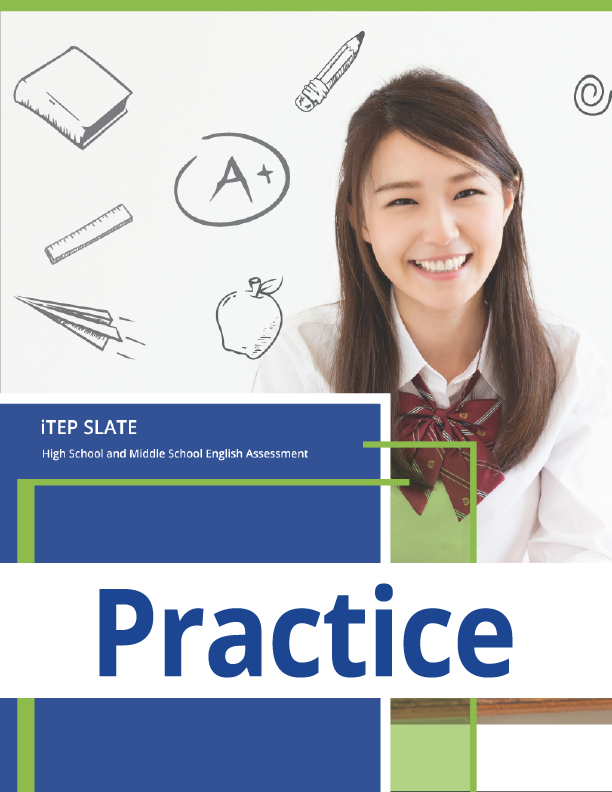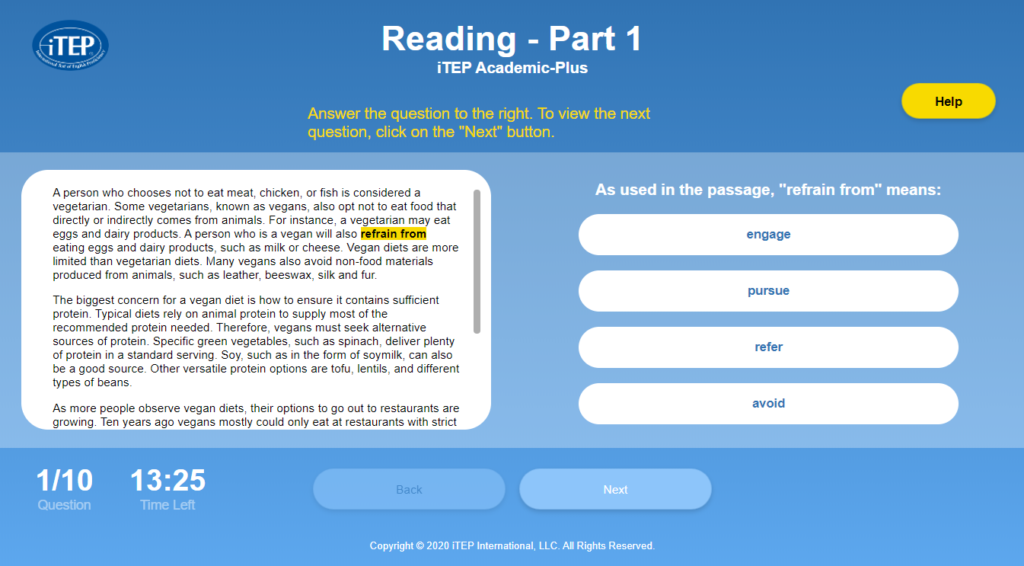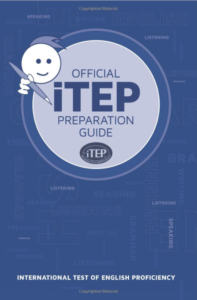Ways To Prepare For iTEP
Here are ways to help make sure your experience taking the test is as low-stress as possible. These ideas apply to all of our tests. Whether you’ll be taking iTEP Business at your workplace or iTEP SLATE or iTEP Academic for admissions or placement in school, all of our exams share a similar intuitive structure, a convenient administration procedure, and a standardized scoring rubric.
1. iTEP Prep courses
Enroll in an iTEP Prep Course to better understand which skills the exam is testing and which modalities and areas you want to focus on as you prepare for the test
- To enroll in an iTEP Prep course for the Academic exams click here
- To enroll in an iTEP Prep course for the Business Plus exam click here (coming soon)
- To enroll in an iTEP Prep course for the SLATE exam click here (coming soon)


2. Practice Tests
The questions you’ll find on the International Test of English Proficiency are in different formats than you will see on any other test. Becoming familiar with these formats ahead of time can make you more comfortable and relaxed during the test.
While previously it cost $10 to take the iTEP Practice Test, you can now take it online for free! The practice test uses questions that have been retired from the exam, so these are real test questions that just aren’t used anymore. You’ll be able to see exactly what the test looks like and how the different sections work. You will receive a score for the practice test which can help you get a sense of what your score may be on the exam. Our social media channels such as Facebook, Twitter, Instagram and Weibo also post retired test questions every week. Following these accounts is a great way to keep preparing for the test.
Take an iTEP practice test to understand better which skills the exam is testing and which modalities you might focus on first to improve your scores. To buy iTEP practice tests click this link.
3. Determine which skills will be assessed
One critical aspect of preparation is understanding what skills the exam is testing. iTEP exams assess some or all of the following skills: speaking, writing, grammar, reading, and listening. It’s important to know which skills will be tested on the exam you are planning to take.
For admissions, institutions use iTEP Academic (college and university) or iTEP SLATE (young learners), which assess all five language skills. In some academic settings for placement and progress monitoring, only grammar, writing, and listening are assessed (these are the sections of iTEP that are scored instantly and automatically).
In some business settings, such as restaurants, hotels, and cruise lines using our iTEP Hospitality test, only speaking and listening are assessed because these are the skills most necessary for different positions in this field.



4. Official iTEP Preparation Guide
The Official iTEP Preparation Guide is a hard-copy book that is the only official guide to preparing for iTEP. In addition to examples and descriptions of every type of question you’ll see on the test, the Prep Guide provides information on how the different sections are scored. There are no secret tricks here, but it can be helpful to have an awareness of all the different factors graders will take into account.